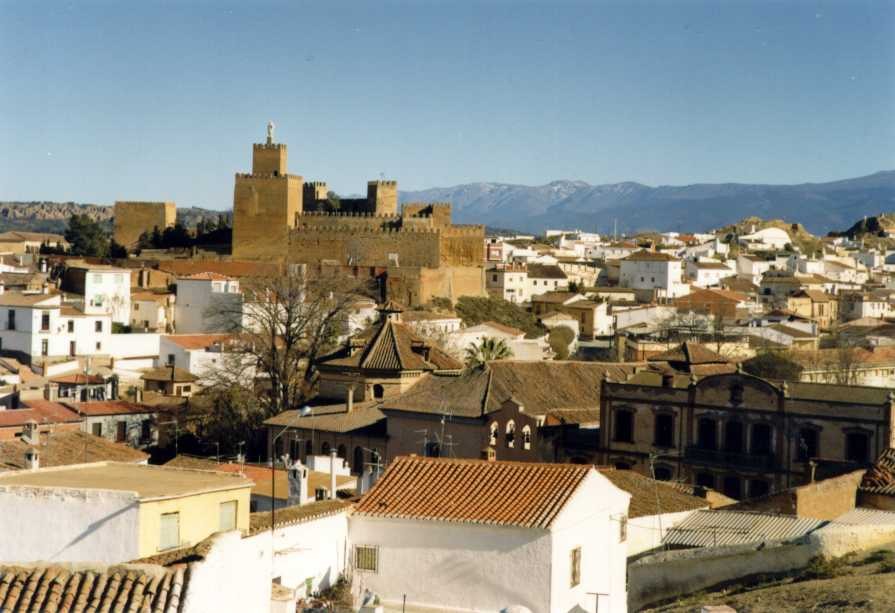Time and Location
Tuesdays 10:40-11:30 and Thursdays 10:40- 12:35
Flint 111
Description
The Middle Ages (ca. 500-1300) was a period of fundamental transformations in Spanish history. At the same time it was the only period between Antiquity and the modern age in which the Iberian Peninsula witnessed the most remarkable political, religious, cultural, linguistic, and ethnic diversity in its history. Such diversity creates serious problem of study, as during the Middle Ages, three or, occasionally more, Christian states existed at the same time, each with its own distinct history, culture, and institutions. In addition, one or more Muslim powers dominated the south. The inescapable importance of the Jewish and Basque communities adds to a bewildering richness and complexity of the cultural and religious mix. The medieval history of Spain has long been regarded as isolated from the mainstream of European development, but more than in any other period in the history of the Iberian Peninsula, Spain during the Middle Ages was linked to a vast region in Eurasia, from the banks of the Danube to the deserts of Arabia.
In this course we will examine the various aspects of that history. We will initially follow a topical, rather than chronological order. Our focus will be on the Spanish mainland, but we will also look at some of the neighboring areas, such as the Baleares.
Textbooks
- Roger Collins, Early Medieval Spain: Unity in Diversity, 400-1000. 2nd edition. La Vergne: St. Martin’s Press, 2010 [hereafter Collins]; ISBN 031212662X; on two-hour reserve in Library West
- Olivia Remie Constable (ed.), Medieval Iberia. Readings from Christian, Muslim, and Jewish Sources. 2nd edition. Philadelphia: University of Pennsylvania Press, 2012 [hereafter Constable]; ISBN 9780812221688; on two-hour reserve in Library West
- Peter Linehan, Spain, 1157-1300. A Partible Inheritance. Oxford: Wiley-Blackwell, 2011 [hereafter Linehan]; ISBN 9781444339758; available as e-book through Library West
- Bernard F. Reilly, The Contest of Christian and Muslim Spain, 1031-1157. Malden/Oxford: Wiley Blackwell, 1992 [hereafter Reilly]; ISBN: 978-0-631-19964-9; on two-hour reserve in Library West
Assignments and grading policies
There is no attendance policy, but you are responsible for attending all lectures and reading the required texts. Class participation may be taken into account to determine the overall grade. The basis for evaluation of performance will be four quizzes and two exams (Midterm and Final). The unannounced quizzes are exclusively based on primary source readings from your Constable book and will consist only of multiple-choice questions (no essay). A careful study of these texts is necessary for a good performance at the quiz. The Midterm and Final exams will cover everything from lectures and readings. Both Midterm and Final will consist of two parts: an identification and/or multiple-choice part, and a short essay, in which you will be asked to synthesize your knowledge of the topic, dropping in facts to show that you understand the concrete aspects of that topic. Only the Midterm will be cumulative. In other words, the Final examination will cover only the material since the Midterm examination. Make-up Midterm and Final exam will be given for very serious reasons, in which case you will have to produce some official proof. There is no make-up for quizzes. Extra-credit work will be accepted only for students with active participation in class discussions. The format of the extra-credit option shall be discussed with the instructor during regular office hours. The following point system will be used in determining the final grade:
Quizzes: 40 points
Midterm: 30 points
Final exam: 30 points
Total: 100 points
The following scale will be used in determining your final grade.
| Points | Grade |
| 97-100 | A |
| 93-96 | A- |
| 88-92 | B+ |
| 81-87 | B |
| 75-80 | B- |
| 68-74 | C+ |
| 61-67 | C |
| 55-60 | C- |
| 48-54 | D+ |
| 41-47 | D |
| 35-40 | D- |
| under 30 | E |
